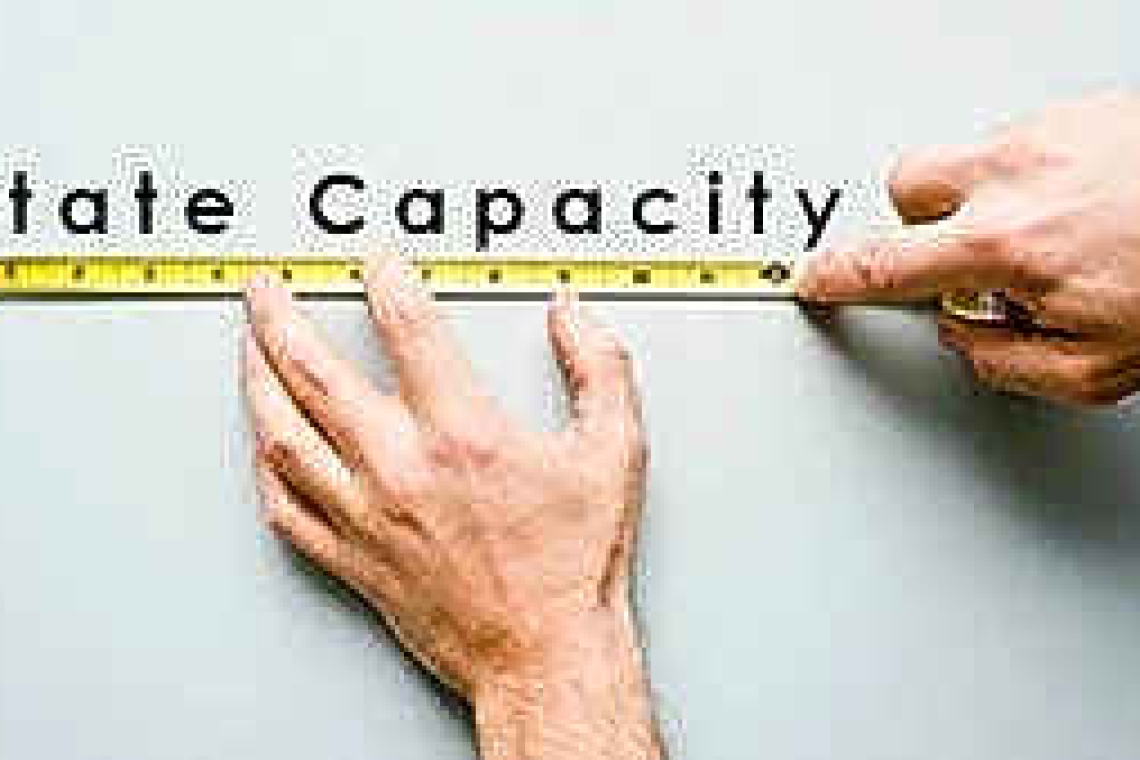The “capacities of state” are realized through the professionalism and effectiveness of the institutions that are created by the state to deliver its services to the people. These services fall into five categories: Leadership (the elected and appointed officials), the Military, the Police, the Judiciary and the Civil Service.
The following are internationally recognized aspects to measure the capacities of state: Transparency, integrity, lawfulness, sound policy, stakeholder participation, accountability, responsiveness, and the absence of corruption and wrongdoing. These aspects, when measured, give a picture as to the strength of the many state institutionsA and those institutions’ effectiveness in meeting the needs of the society. This process contributes to “government legitimacy,” the term which refers to the degree to which the people believe in their government and its capacity.
These aspects are key to the effectiveness of not only public institutions but also private institutions, and must be measured in both. It is through the open evaluation of the public and private institutions that legitimacy is built. Legitimacy is the core of TRUST in government.
Trust is enabling. Governments can increase citizen trust with clearer promises of what citizens can expect from them, public sector reforms that enable them to keep their promises, and institutional reforms that strengthen the commitments to citizens as stakeholders.
Mistrust distorts democratic decision-making. It keeps citizens from demanding better public services and infrastructure, from joining with others to control corruption, and from making the collective sacrifices that leave everyone better off.
According to fragility research, trust is the most pressing and yet least discussed problem confronting Latin America and the Caribbean. Whether in others, in government, or in the private sector, trust is lower in the region than anywhere else in the world. The economic and political consequences of mistrust ripple through society. It suppresses growth and innovation. Investment, entrepreneurship, and employment all flourish when firms and government, workers and employers, banks and borrowers, and consumers and producers trust each other.
Trust of private and public sector institutions is essential for legitimacy. Measuring legitimacy of the state’s capacity increases trust and is the sure way to improve a state’s capacities. The results for Curaçao over the past four years as measured by the Fragile States Index indicates that there is a low level of trust in these institutions, concluding that the capacity of state is weak and, therefore, the perception of government legitimacy is low.
With this column, the Think To DO Institute publishes short pieces related to the facts and results of its research reports, so that readers can learn more about the vulnerability of their country. For more information about the Think To DO Institute, visit our website: www.thinktodoinstitute.com; contact: This email address is being protected from spambots. You need JavaScript enabled to view it.







